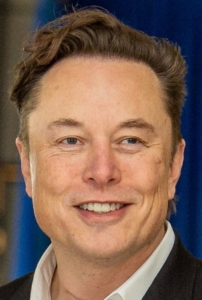Switzerland
Introducing the Salary Cap Act
by Daniel Wortel-London

Obscene salaries are no longer sustainable and should be illegal. (Justin Pacheco, Wikimedia)
The daily news regularly features commentary about the outrageous and growing income inequality in the USA. The data support the outrage:
- In 1965, the CEO-to-worker salary ratio at the average U.S. company was 21-to-1. Today that ratio is 344-to-1.
- In 2022, CEO pay at 100 S&P 500 companies averaged $15.3 million, while median worker pay averaged only $31, 672, according to an Institute of Policy Studies analysis.
- Since 1978, CEO pay has increased 1,460 percent.
Many reasons can be cited for opposing large discrepancies in pay, including depressed morale of employees, diminished firm productivity, and widened gender and racial disparities. Another reason is their effect on the environment. High salaries tend to increase environmental impacts. And high pay, particularly high CEO pay, is dependent on—but also drives—the economic growth that is creating today’s societal and environmental crises.
To counter inequality in the USA, CASSE proposes adoption of a Salary Cap Act (SCA). The Act would create salary caps by major occupational sector, as Brian Czech proposed in Supply Shock. Almost no expansion of the Tax Code is entailed. The SCA would simply prohibit the issuance of salaries beyond the prescribed proportions (described below), making it a crime for employers to issue exorbitant salaries.
Exorbitant Salaries and Environmental Degradation
Generating money entails agricultural and extractive activity at the trophic base of the economy. Therefore, the need to pay exorbitant salaries results in more environmental degradation than paying for lesser salaries. Imagine, for example, the ecological footprint required to pay Elon Musk compared to a minimum-wage worker.
Highly paid individuals are more likely to purchase resource-intensive luxury goods, too. This is one reason why the USA’s top one percent of income earners was responsible for 23 percent of the growth in global carbon emissions between 1990 and 2019. And income inequality leads to inequality in political power, which helps CEOs lobby for policies that promote unsustainable growth.

Limiting the environmental impact of the economy entails limits on high salaries. (Richard Hurd, Creative Commons 3.0)
High salaries drive growth in less obvious ways as well. At many corporations, CEO compensation includes a generous grant of stock and stock options. These sweeteners motivate CEOs to strive for company growth, then use profits to buy back company stock, which raises its price and enriches the CEO even further.
For example, the compensation of oil company executives is intimately linked to exploring for new fields, extracting fossil fuels, and promoting consumption of their fuels and services, activities that contribute to the growth of the firm. As Richard Heede of the Climate Accountability Institute observes, “executives have personal ownership of tens or hundreds of thousands of shares, which creates an unacknowledged personal desire to explore, extract and sell fossil fuels.”
Moreover, high CEO compensation through stock options and bonuses encourages companies to take a short-term perspective that can involve boosting stock prices quickly through shortsighted sales or risky investments. The Enron scandal, for example, involved CEOs trying to quickly raise stock prices in pursuit of bonuses. Selfish and short-sighted decisions like these can take a serious environmental toll, and are disastrous at a time when companies should be committed to the long-term health of our planet.
Drivers of Unequal Pay
CEO pay has increased extensively in part because companies have grown larger and wealthier, which allows them to offer fatter salaries. It’s also because CEOs have increased their leverage over corporate boards and can therefore set their own pay more easily. But the greatest reason is because CEOs are compensated differently than ordinary workers: Some 80 percent of CEO compensation in 2021, for example, derived from vested stock awards and exercised stock options rather than “ordinary” salaries. CEOs are thus able to negotiate salaries that are orders of magnitude higher than the salaries of workers paid through more conventional means.
Policymakers have a deep toolbox for addressing pay inequality. They can, for example, ban or tax stock buybacks or deny public contracts to companies with excessively high pay inequalities. Measures like these are now law. The Inflation Reduction Act placed a 1 percent excise tax on stock buybacks, while San Francisco and Portland, Oregon have taxed companies with large CEO-worker pay gaps. Inspiration comes from outside the USA as well. The European Union will assist in bailing out failed banks only when their pay ratios are 10-to-1 or less.

Franklin Roosevelt called for a 100 percent tax on annual incomes above $1.2 million (in 2022 dollars). (Elias Goldensky, Public Domain).
But another, more direct remedy for pay inequality is salary caps. We’ve seen such caps in professional sports leagues for decades, including every major league in the USA except Major League Baseball. These caps are much higher than those prescribed in the Salary Cap Act presented below, but they achieve analogous purposes. Leagues use caps to keep overall costs down and ensure a competitive balance among teams. The USA would use salary caps to for purposes of social equity, but also to keep environmental impact at a lower, more sustainable level.
Salary caps, along with caps on wealth and other forms of income, have been proposed by various economists and progressive policymakers, occasionally with public success. A referendum was held in Switzerland in 2013 to cap executive incomes; while unsuccessful, it emboldened major candidates in France and England to endorse similar salary caps. And campaigns for wealth and income caps have taken various forms in U.S. history, from Huey Long’s “Share our Wealth” campaign to Franklin Roosevelt’s call for a 100 percent tax on high incomes during World War II.
In the spirit of these efforts, CASSE proposes the Salary Cap Act.
The Salary Cap Act
The Salary Cap Act is designed to curb exorbitant salaries for purposes of social equity and environmental health. Salary caps are set and enforced by the Department of Labor. A separate provision addresses pay for self-employed workers.
The SCA defines “salaries” as wages, bonuses, tips, and other forms of compensation specified under Section 3401(a) of the Internal Revenue Code. This broad definition is meant to encompass forms of compensation, such as corporate stock options, which are not traditionally classified as “salaries.”
Section 4 describes the target and structure of the salary caps. The Secretary of Labor sets the caps for each of the 23 major occupational groupings in the Standard Occupational Classification (SOC) Codes maintained by the Bureau of Labor Statistics. The caps are set, and updated annually, to correspond to 1.8 times the salary of the 90th percentile of employees for each occupational grouping. (In other words, maximum salaries in each occupational grouping are 80 percent higher than the salary at which 90 percent of salaries in the grouping are lower and ten percent are higher.)
For example, the annual salary cap for managerial occupations would be set at $400,000, while the cap for food preparation occupations would be set at $81,270. Salary disparities would remain, but they would be far lower than the disparity today. The average CEO-to-worker pay gap across occupational categories is currently 344-to-1. Under the SCA, the ratio would be roughly 7-to-1.

We can respect planetary boundaries, or we can have billionaires, but not both. (Adrian Cadiz, Wikimedia)
Meanwhile, traditional and reasonable salary discrepancies among professions are still respected. For example, licensable occupations that require extensive training or years of graduate school warrant a higher range of salaries than those for occupations requiring little training or education.
The value of 1.8 in the maximum salary formula is chosen because the salary of the President of the United States is currently 1.8 times the 90th percentile of CEO salaries. We do not believe a CEO deserves to be paid more than the president. Still, the SCA’s maximum salary formula offers plenty of room to reward superior performance while curbing the social and environmental distortions of exorbitant salaries.
Section 5 describes how the Office of Labor-Management Studies in the Department of Labor will enforce the SCA. The Office will have the power to petition a court if it believes the Act has been violated. Companies found guilty will face criminal penalties of up to $100,000,000, imprisonment not exceeding 10 years, or both.
A concluding section requires net earnings from self-employment or employee ownership in excess of $400,000 be taxed at 100 percent. Salaries derived from self-employment are not included in the NAICS SOC codes, so it is necessary to “cap” these earnings through taxation rather than salary caps.
The SCA is designed to be both a stand-alone bill and a component of the larger Steady State Economy Act. It will not, by itself, end wealth inequality or ecological overshoot. But it will help apply brakes on incentives that drive economic firms to grow the economy beyond our planet’s carrying capacity.
We also encourage the voluntary adoption of salary caps prior to passage of the SCA. In addition to contributing to the social and environmental purposes of the SCA, such voluntary caps provide a boost to employee morale and cut costs for small businesses and nonprofit organizations.
The Salary Cap Act may be revised pursuant to reader responses and the input of CASSE allies.
Daniel Wortel-London is a CASSE Policy Specialist focused on steady-state policy development.

The post Introducing the Salary Cap Act appeared first on Center for the Advancement of the Steady State Economy.
Innovation for the Masses: How to Share the Benefits of the High-Tech Economy – review
In Innovation for the Masses: How to Share the Benefits of the High-Tech Economy, Neil Lee proposes abandoning the Silicon Valley-style innovation hub, which concentrates its wealth, for alternative, more equitable models. Emphasising the role of the state and the need for adaptive approaches, Lee makes a nuanced and convincing case for reimagining how we “do” innovation to benefit the masses, writes Yulu Pi.
Professor Neil Lee will be speaking at an LSE panel event, How can we tackle inequalities through British public policy? on Tuesday 5 March at 6.30pm. Find details on how to attend here.
 While everyone is talking about AI innovations, Innovation for the Masses: How to Share the Benefits of the High-Tech Economy arrives as a timely and critical examination of innovation itself. Challenging the conventional view of Silicon Valley as the paradigm for innovation, the book seeks answers on how the benefits of innovations can be broadly shared across society.
While everyone is talking about AI innovations, Innovation for the Masses: How to Share the Benefits of the High-Tech Economy arrives as a timely and critical examination of innovation itself. Challenging the conventional view of Silicon Valley as the paradigm for innovation, the book seeks answers on how the benefits of innovations can be broadly shared across society.
When we talk about innovation, we often picture genius scientists from prestigious universities or tech giants creating radical technologies in million-dollar labs. But in his book, Neil Lee, Professor of Economic Geography at The London School of Economics and Political Science, tells us there is more to it. He suggests that our obsession with cutting-edge innovations and idolisation of superstar hubs like Silicon Valley and Oxbridge hinders better ways to link innovation with shared prosperity.
Lee stresses that innovation doesn’t make a difference if it stays locked up in labs; it needs to be shared, learned, improved and used to make real impacts.
Innovation goes beyond the invention of disruptive new technologies. It also involves improving existing technologies or merging them to generate new innovations. In this book, Lee illustrates this idea using mobile payment technologies as an example, showcasing how the combination of existing technologies – mobile phone and payment terminals – can spawn new innovations. He argues that “technologies evolve through incremental innovations in regular and occasionally larger leaps” (23). Moreover, Lee stresses that innovation doesn’t make a difference if it stays locked up in labs; it needs to be shared, learned, improved and used to make real impacts. It is important to think beyond the notion of a single radical invention and recognise the contributions not only of major inventors but of “tweakers” who make incremental improvements and implementers who operate and maintain innovative products (25).
In challenging the conventional narratives of innovation, this book guides us to expand our understanding of innovation and paves the way for a discussion on combining innovation with equity. When we pose the question “How do we foster innovations?”, we miss out on asking a crucial follow-up: “How do we foster innovations that translate into increased living standards for everyone?”. Lee argues that the incomplete line of questioning inevitably steers us towards flawed solutions – countries all over the world building their own Silicon-something.
While the San Francisco Bay Area is home to many successful start-up founders who have made billions, it simultaneously struggles with issues like severe homelessness.
While the San Francisco Bay Area is home to many successful start-up founders who have made billions, it simultaneously struggles with issues like severe homelessness. The staggering wealth gap is evident, with the top 1 per cent of households holding 48 times more wealth than the bottom 50 per cent. Other centres of innovation like Oxbridge and Shanghai are also highly unequal, with the benefits of innovations going to a small few.
The book introduces four alternative models of innovation – Switzerland, Sweden, Austria and Taiwan – that suggest innovation doesn’t inevitably coincide with high-level inequality.
The book introduces four alternative models of innovation – Switzerland, Sweden, Austria and Taiwan – that suggest innovation doesn’t inevitably coincide with high-level inequality. Through these examples, Lee highlights the significance of often-neglected aspects of innovation: adoption, diffusion and incremental improvements. Take Austria, for instance, which might not immediately come to mind as a global hub of disruptive innovation. Its strategic commitment to continuous innovation – particularly in its traditional, industrial sectors like steel and paper – sheds light on the more nuanced, yet equally impactful, facets of innovation. (92) Taiwan, on the other hand, gained its growth from technological development facilitated by its advanced research institutions such as the Industrial Technology Research Institute and state-led industrial policy. Foxconn stands as the world’s fourth-largest technology company, while the Taiwan Semiconductor Manufacturing Company (TSMC) accounts for half of the world’s chip production (116).
In all four examples, the state played a critical role in creating frameworks to ensure that benefits are broadly shared, showing that policies on innovation and mutual prosperity reinforce each other.
Building on these examples, the book highlights the vital role of the state in both spurring innovations and distributing the benefits of innovation. In all four examples, the state played a critical role in creating frameworks to ensure that benefits are broadly shared, showing that policies on innovation and mutual prosperity reinforce each other. Taking another look at Austria, ranked 17th in the World Intellectual Property Organization (WIPO)’s Global Innovation Index (99), its strength on innovation is accompanied by the state’s heavy investment on welfare to build a strong social safety net.
As the book draws to a close, it advocates for the development of a set of specific institutions. The first type, generative institutions, foster the development of radical innovations. These are heavily funded in the US, resulting, as British economist David Soskice claims, in the US dominance in cutting-edge technologies (169). The book shows a wide array of generative institutions through its four examples. For instance, in Taiwan, research laboratories play a crucial role in the success of its cutting-edge chip manufacturing, while the government directs financial resources towards facilitating job creation. On the other hand, Austria has concentrated its fast-growing R&D spending on the upgrading and specialisation of its low-tech industries of the past.
The second and third types, diffusive and redistributive institutions, aim to address issues of inequality, such as labour market polarisation and wealth concentration that might come with innovation. These two types of institutions offer people the opportunity to participate in the delivery, adoption and improvement of innovation. Switzerland’s mature vocational education system is a prime example of such institutions, “facilitating innovation and the diffusion of technology from elsewhere and ensuring that workers benefit.” (172)
Discussions about ‘good inequality’ where innovators are rewarded, and “bad inequality,” where wealth becomes too concentrated demonstrate the book’s strong willingness to call out inequality and tackle complex issues head-on.
Discussions about “good inequality” where innovators are rewarded, and “bad inequality,” where wealth becomes too concentrated demonstrate the book’s strong willingness to call out inequality and tackle complex issues head-on. (8) This integrity extends to Lee’s candid examination of the examples. Despite presenting them as models of how innovation can be paired with equity, he does not gloss over their imperfections. By recognising the persistent disparities in gender, race, and immigration status in all four of these examples, the book presents a balanced narrative that urges readers to think critically. Although these countries have made strides in sharing the benefits of innovation, they are far from perfect and still have a significant journey ahead to reduce these disparities. Take Switzerland, for example. Though it consistently tops the WIPO’s Global Innovation Index, maintaining its position for the 13th consecutive year in 2023, it grapples with one of the largest gender pay gaps in Europe. This gender inequality has deep roots, as it wasn’t until 1971 that women gained the right to vote in Swiss federal elections (71).
Lee warns against the naive replication of these success stories elsewhere without adapting them to the specific context. This frank and thorough approach enriches the conversation about innovation and inequality, making it a compelling and credible contribution to the discourse and a convincing argument for changing what we consider to be the purpose of innovation.
This post gives the views of the author, and not the position of the LSE Review of Books blog, or of the London School of Economics and Political Science.
Image Credit: vic josh on Shutterstock.
McDonalds, Starbucks, others admit Gaza boycott hitting profits
Firms admit losses or even cut ties with Israel
The chief executives of food chains McDonalds and Starbucks have admitted that the global boycott of their stores and products because of the firms’ support for Israel is hitting their profits. McDonalds in Israel provided free meals to Israeli soldiers participating in Israel’s mass slaughter of Palestinian civilians, while Starbucks has sued a union representing some Starbucks workers – the firm has engaged in union-busting efforts – for a post on the union’s social media account expressing solidarity with Palestinians in Gaza.
Other firms have suffered similarly and have even cut ties with Israel because of widespread grassroots anger over the genocide in Gaza. Swiss-based shipping firm Kuehne & Nagel has ceased transporting materials for Israeli weapons firm Elbit Systems and Japanese giant Itochu has announced it will end all collaboration with the same Israeli firm by the end of this month, citing the International Court of Justice’s damning findings against Israel last month in the case brought by South Africa.
January also saw controversy in Ireland after Dublin airport closed its Starbucks but continued to sell the firm’s products under a different brand.
The longstanding ‘boycott, divestment and sanctions’ (BDS) campaign of peaceful resistance to Israel’s apartheid and illegal occupation rattles Israel to such an extent that it set up a specific government department to combat and discredit it. Now, with the Houthi blockade of Israel-bound shipping hitting Israel’s economy, BDS is biting even deeper.
SKWAWKBOX needs your help. The site is provided free of charge but depends on the support of its readers to be viable. If you’d like to help it keep revealing the news as it is and not what the Establishment wants you to hear – and can afford to without hardship – please click here to arrange a one-off or modest monthly donation via PayPal or here to set up a monthly donation via GoCardless (SKWAWKBOX will contact you to confirm the GoCardless amount). Thanks for your solidarity so SKWAWKBOX can keep doing its job.
If you wish to republish this post for non-commercial use, you are welcome to do so – see here for more.
US trying to persuade Switzerland to waive Geneva Conventions for Israel in Gaza
Rules of war banning inhumane treatment of POWs and civilians should not be invoked, say US diplomats behind scenes as US complicity in Israeli war crimes becomes explicit
US diplomats are trying to persuade Switzerland – the custodians of the Geneva Conventions governing the rules of conduct during war, with the ability to decide when meetings are held to discuss non-compliance – to set aside the application of the Conventions to Israel’s genocidal campaign against Palestinians in Gaza, according to documents seen by the HuffPost US.
The Geneva Conventions are a set of treaties and protocols known particularly for the strictures of the third and fourth conventions on how nations can treat civilians and prisoners of war:
- The First Geneva Convention “for the Amelioration of the Condition of the Wounded and Sick in Armed Forces in the Field” (first adopted in 1864, revised in 1906, 1929 and finally 1949);
- The Second Geneva Convention “for the Amelioration of the Condition of Wounded, Sick and Shipwrecked Members of Armed Forces at Sea” (first adopted in 1949, successor of the Hague Convention (X) 1907);
- The Third Geneva Convention “relative to the Treatment of Prisoners of War” (first adopted in 1929,[35] last revision in 1949);
- The Fourth Geneva Convention “relative to the Protection of Civilian Persons in Time of War” (first adopted in 1949, based on parts of the Hague Convention (II) of 1899 and Hague Convention (IV) 1907).
But Israel – whose advocates frequently complain that they want Israel to be treated like any other country – and its US backers want Israel to be exempted from these universal rules of war.
This is unsurprising, given the mass slaughter of civilians, especially children, the targeting of schools and hospitals, the alleged execution of women and children and the mass graves of victims – but it is surprising to hear this homicidal exceptionalism being so bluntly stated.
Yet according to the article:
U.S. diplomats are finalizing a démarche ― a diplomatic initiative ― to their Swiss counterparts that Washington hopes will scuttle plans for a meeting to discuss violations of the Geneva Conventions in the current war between Israel and Hamas, the Gaza-based militant group, according to State Department documents seen by HuffPost.
The revelation comes as the U.S. is simultaneously slow-rolling the most high-profile international attempt to ease suffering in Gaza: a United Nations Security Council resolution that would drastically increase the flow of humanitarian aid into the besieged strip…
Palestinian diplomats and a significant group of U.N. member states, including some European nations allied with the U.S., are preparing a call for Switzerland to launch such a conference focused on the fighting on Israel-Palestine that would cover Geneva Conventions violations by all parties, according to the State Department documents and a person familiar with the Palestinian effort.
Despite global public opinion abhorring Israel’s constant war crimes against Palestinian civilians in Gaza and the West Bank, the US is determined to keep Israel unaccountable for its actions.
SKWAWKBOX needs your help. The site is provided free of charge but depends on the support of its readers to be viable. If you’d like to help it keep revealing the news as it is and not what the Establishment wants you to hear – and can afford to without hardship – please click here to arrange a one-off or modest monthly donation via PayPal or here to set up a monthly donation via GoCardless (SKWAWKBOX will contact you to confirm the GoCardless amount). Thanks for your solidarity so SKWAWKBOX can keep doing its job.
If you wish to republish this post for non-commercial use, you are welcome to do so – see here for more.

